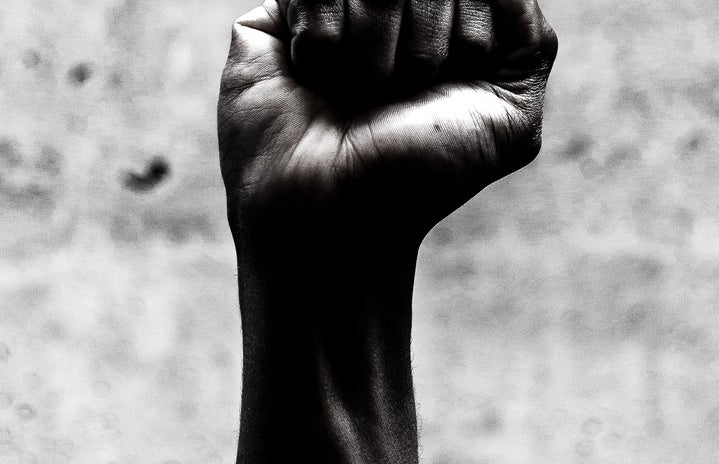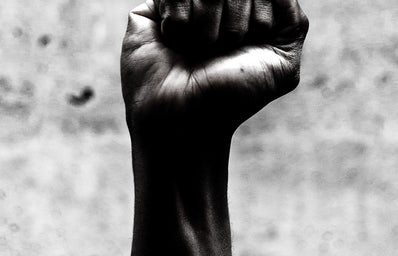George Floyd. Breonna Taylor. Tamir Rice. Tony McDade. Trayvon Martin. Oscar Grant III. Eric Garner. Philando Castile. Samuel DuBose. Sandra Bland. Walter Scott. Terence Crutcher. William L Chapman II. Jonathan Sanders. Anthony Hill. Eric C Harris. Jamarion Robinson. Jerame Reid. Jamar Clark. Jeremy McDole. Laquan McDonald. Michael Brown Jr. Ezell Ford. Dante Parker. Michelle Cusseaux. Joseph Mann. Tanisha Anderson. Aaron Bailey. Alonzo Smith. Phillip White. Akai Gurley. John Crawford III. Ronell Foster. Willie McCoy. Dominique Clayton. Michael Sabbie. Freddie Blue. Mya Hall. Jordan Edwards. Willie Tillman. Botham Jean. Christopher Whitfield. Eric Reason. Janet Wilson. Keith Childress Jr. Mary Truxillo. Kevin Hicks. Felix Kumi. Freddie Gray. Natasha McKenna. Troy Robinson. India Kager. Alteria Woods. Atatiana Jefferson. Asshams Pharoah Manley. Renisha McBride.
SAY THEIR NAMES.
This is a non-comprehensive list of Black individuals who have died at the hands of police brutality and they deserve justice.
George Floyd’s murder sparked protests across the country and much-needed conversations about the racism that is rooted deep in American history. Racism is still alive and well in 2020; the only difference is that now it is being filmed. People can no longer deny that Black people are more likely to be stopped, searched, and killed by police than anyone else. The evidence is there and it always has been. White supremacy is still evident in American society. The time for change is now. Enough is enough.
As a Non-Black Person of Color (N-BPOC), I have taken it upon myself to become educated on how I can be an ally to the Black community and advocate for social and systemic change. Here is what I’ve learned that you, a white or N-BPOC, can do to be part of the change.
- Self Examination
-
This is paramount in becoming an ally. Recognize the prejudices you may hold against people of races other than your own. Stop and be honest with yourself. Do you hold racist attitudes towards people that don’t look like you? If you do, delve deeper into why you hold those attitudes. Did you learn these stereotypes from your friends, family, teachers? Is the media feeding you lies about specific groups of people? How can you change the attitudes you have?
- Recognize Your Privilege
-
Stop denying that you don’t have privilege based solely on the color of your skin. If you can jog, go birding, relax in the comfort of your own home, go to church, play with a toy gun, party with your friends, sell CDs, sleep, take out your wallet, or ask a cop a question without thinking twice, you are privileged. These are all things that Black people have been murdered for. Recognizing your privilege is essential in being an ally because you need to be aware that you are treated differently in most aspects of society because of your skin. Society is catered to you.
- Use Your Privilege
-
Use your privilege to help the oppressed. During protests, stand between Black protesters and police officers. Use your voice to call out racism and actively be anti-racist. Sign petitions and vote. If you have the means, donate to funds that support the Black Lives Matter (BLM) movement.
Here are some places you can donate:
**If you do not have the means to donate, you can donate by streaming this playlist. DO NOT SKIP THE ADDS. The money made from this video will be donated to causes that support #BlackLivesMatter.
- Educate Yourself About the Barriers to Success POC Face.
-
Don’t rely on your Black and other POC friends to educate you on the everyday hardships they face. Take a sociology class on race and racism, listen to podcasts, watch documentaries, and read books by black authors on racism. Listen to their stories and learn about their history.
Here are some excellent anti-racism books you should read:
America’s Original Sin by Jim Wallis
Good Talk: A Memoir in Conversations by Mira Jacob
So You Want to Talk About Race by Ijeoma Oluo
How to Be an Antiracist by Ibram X. Kendi
The Fire This Time: A New Generation Speaks About Race edited by Jesmyn Ward
I’m Still Here by Austin Channing Brown
Citizen by Claudia Rankine
Just Mercy by Bryan Stevenson
The Color of Law: A Forgotten History of How Our Government Segregated America by Richard Rothstein
Stamped From the Beginning by Ibram X. Kendi
Shows and films that dive into racism:
13th (Netlix)
When They See Us (Netflix)
Dear White People (Netflix)
American Son (Netflix)
See You Yesterday (Netflix)
Just Mercy
Selma
Little Fires Everywhere (Hulu)
The Hate U Give (Hulu)
If Beale Street Could Talk (Hulu)
Green Book
Podcasts that discuss the importance of racial equity:
“1619”
“About Race”
“The Diversity Gap”
“Code Switch”
“Momentum: A Race Forward Class”
Sociology classes offered at the University of Utah:
Class, Race & the American Dream
Special Topics – Diversity & Inequality
Social Inequality: Disadvantage in the Land of Opportunity
Exploring Social Inequality Through Music & Film
Social Disparities in Health
Accounts To Follow on Instagram:
@BLKLIVESMATTER
@COLOROFCHANGE
@NAACP
@UNITEDWEDREAM
@THECONSCIOUSKID
@RECLAIMTHEBLOCK
** There is plenty of material out there that you can utilize to educate yourself and others on race. There is no excuse in not knowing the severity racism has on Black people and N-BPOC.
- Shut up and Listen
-
It is not your job to tell the Black community how to feel about all this, nor is it your job to tell them how to protest. Listen to those who have been directly affected by police brutality and be respectful. Black folks need to be heard and the only way you can be an ally is if you listen and validate their feelings. The anger that has been felt across the United States as a result of the murder of George Floyd is valid. Don’t make the protests about yourself. If you are going to show up, do it because you want to be an ally and an advocate, not because it’ll look cool on your social media feed.
- Talk About Racism Within Your Own Family
-
If you have someone in your family that holds racist attitudes towards POC, call them out, and educate them. To my POC, we are not off the hook simply because we are not white. There is racism that exists between other POC and you know that. We have all experienced some sort of discrimination and oppression but it is not a competition of who is more oppressed. It is so paramount that we come together and fight the oppressors, but we cannot do that if we are racist. If your parents and grandparents were taught to be anti-Black, educate them on Black history and explain why they are no better than the oppressor for holding racist attitudes. Yes, POC can become the oppressors too if we continue to teach our children to be anti-Black.
- Take #BlackLivesMatter Beyond Your Social
-
Social media is an effective and easy way to communicate a message and stand up for injustice, but don’t let your activism stop there. If you cannot attend protests there are other ways you can support the movement. The first is by donating to some of the funds listed above. You can also call your representatives, sign petitions, and educate yourself and your family on experiences you have been privileged not to have endured. The movement does not end when the hashtags stop trending.
The anger that resulted from the murder of George Floyd has been felt across the nation. To the Black community, we see you and we hear you. We will do better and we will be better. We stand with you and we support #BlackLivesMatter here at Her Campus Utah. Enough is enough. Far too many lives have been lost at the hands of racism, a disease that America has been fighting for its entire history. The time for change and social justice is now.


